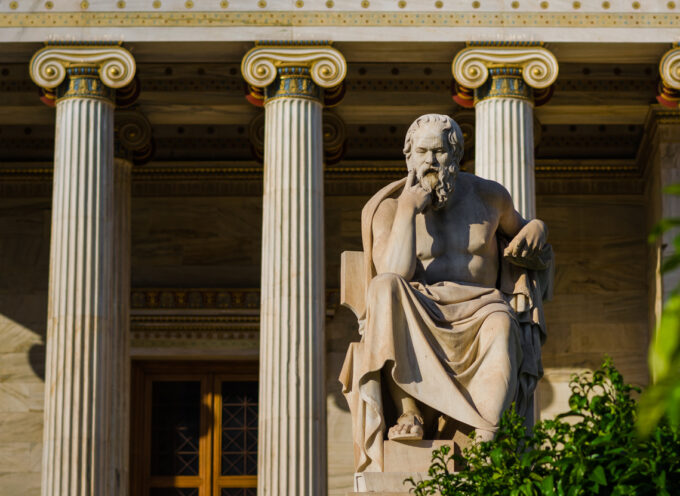There is no shortage of reasons a person might think Christianity and science are intrinsically opposed to one another. The Galileo ordeal. The Scopes trials. The global warming debate. Richard Dawkins. “Et,” as they say, “cetera.”
But none of those reasons are sufficient to demonstrate that Christianity and science are opposed. In fact, the opposite is true. Christianity gave birth to modern science; its theological enterprise overlaps with the sciences and should be viewed as a mutually beneficial conversation partner; the tensions it experiences with science are ad hoc rather than inherent, and can be resolved over time.
1. Christianity gave birth to modern science.
There is a reason that modern science arose within a predominantly Christian civilizational context. Among the many intellectuals and scientist who have recognized that fact is the French physicist Pierre Duhem (1861–1916) whose life task was to research the roots of modern science. He concluded that modern science began, in seminal form, in the Middle Ages, and that Christianized Europe was a conducive environment to scientific inquiry.
Christian doctrine helped foster the rise of modern science. Among the many examples we could give, consider these three doctrines (and here is a book that lists ten doctrines):
- Creation’s goodness. Christian Scripture teaches that the physical and material world is both real (unlike the illusory world envisioned by many Hindus) and good (contrary to the negative perspective of Gnostics and neo-Platonists). It also teaches that the world is good but not divine, which allows humans to study it as an object rather than revering it as a god.
- Creation’s order. Scripture teaches that God ordered the world in such a way that it can be studied (unlike the pagans, who viewed the world as a chaotic arena influenced by the conflicting whims of various deities). Its regularity is such that we have come to speak of “the laws of nature,” which can be stated in mathematical formulas.
- Human rationality. Finally, Scripture portrays humans as beings who have the rational capacities to study this ordered world. In other words, not only did God create the world with the potential to be studied, but he also created humans with the capability to do the studying.
2. Christian theology and the sciences complement one another.
Christianity, therefore, played a significant role in the rise of modern science, and is inherently hospitable to science and scientists. Not all theologians or scientists, however, see it that way. In response to the conflict between theologians and scientists, various views have developed about the relation of theology and science:
- The “Conflict” View: Some people perceive theology and science as overlapping research programs which conflict with one another. In other words, they think that theology and science study a lot of the same subject matter, but disagree in their conclusions. Under this view, the two disciplines are inherently opposed to one another and, in most cases, one discipline is believed to be inherently superior to the other.
- The “Separate Compartments” View: Other people see theology and science as non-overlapping research programs which do not conflict. In other words, they think that theology and science study different subject matter and therefore don’t really disagree in their conclusions.
- The “Partnership” View: Still other people view theology and science as overlapping research programs which should remain in conversation and partnership with one another, and which are not inherently conflictive or competitive. In other words, they think that theology and science sometimes study the same subject matter, but are not inherently opposed to one another, and therefore should stay in conversation with one another in order to arrive at a fuller understanding of truth.
The third view is the best view, the one that fits best with historic Christian teaching and the one that helps us come to a fuller knowledge of truth.
3. Christian theology and the sciences make unique and significant contributions.
The “partnership” view encourages theologians and scientists to converse with one another, being willing to give and receive counsel. Philosopher David K. Clark supports this view when he writes, “Reality is complex and human knowers access different dimensions of reality using different methods. This is precisely why dialogue among disciplines is important. Dialogue permits us to adopt multiple frames of reference on reality. Still, if truth is unified as we hold, we must seek connections between and integration of these multiple frames of reference.” As partners in the pursuit of truth, theology speaks to science and science speaks to theology.
On the one hand, Clark, writes, theology speaks to the sciences by:
- explaining the origin and destiny of the universe
- explaining why it is orderly and can be interpreted
- explaining why sciences matters
- helping to guide future scientific research
- helping provide warrant for one scientific theory over another.
On the other hand, science speaks to theology by:
- offering conceptual frameworks and analogies helpful for elucidating theological concepts
- helping provide warrant for one theological interpretation over another
- illustrating and providing further explanation of biblical teaching on aspects of created reality.
4. Theologians and scientists can reconcile the apparent conflicts that arise periodically between them.
Even as theologians and scientists enter into a mutually beneficial partnership, they will inevitably experience disagreement on various issues. However, as I see it, a proper interpretation of God’s written revelation (Scripture) will never be in conflict with a proper interpretation of God’s creational revelation (nature). Therefore, theologians and scientists should work to resolve the disagreement, even if resolution takes years, decades, or even longer.
While we affirm this truth in theory, in practice, it remains challenging to arrive at the “proper” interpretation at every point. In order to meet the challenge, we must recognize these three principles of resolution.
First, both theologians and scientists err.
Historically, theologians and scientists have made mistakes in their interpretations of Scripture and nature. For example, the Catholic and Protestant church leaders were wrong to claim the Bible’s support for their view that the sun circles around the earth; likewise they were wrong to condemn Galileo for his scientific proof that the earth circles around the sun.
Similarly, scientists in the early twentieth century were erroneous to claim scientific certainty for their belief that the universe is eternal; likewise they were wrong to belittle Christians for their view that the universe had a beginning. In fact, a century later, most scientists agree with Christians that the universe is not eternal. (For further reading, see this article, in which University of Delaware physicist Stephen Barr reveals five different scientific disciplines whose recent findings bring them in line with historic Christian teaching.)
Second, science is in a constant state of flux.
Scientific hypotheses and conclusions are always changing. In fact, as historian of science Thomas Kuhn observed, scientific consensus can shift rapidly, even irrationally. For this reason, theologians should be very careful not to hastily revise their interpretation of Scripture based upon a purportedly “proven” scientific fact.
Third, Scripture is not intended to be a science textbook.
Scripture does make statements that are scientifically verifiable and, as I understand it, Scripture does not err scientifically in what it asserts. But, and this is a big “but,” Scripture does not articulate scientific theories and does not usually communicate with scientific precision; therefore its teachings should not be judged based on modern standards for scientific comprehensiveness or precision.
Conclusion
Although Christians and non-Christians alike sometimes think that Christianity and science are inherently opposed to one another, the opposite is true: Christianity gave birth to modern science; its theological enterprise overlaps with the sciences and should be viewed as a mutually beneficial conversation partner; the tensions it experiences with science are ad hoc rather than inherent, and can be resolved over time. Based upon these principles, both scientists and theologians should pray for humility and wisdom, and should converse with one another as they both seek fuller access to the truth about God’s world.
Subscribe
Never miss a post! Have all new posts delivered straight to your inbox.








Francis Bacon saw Christianity as the safeguard against the abuse of his scientific method.
“Lastly, let none be alarmed at the objection of the arts and sciences becoming depraved to malevolent or luxurious purposes and the like, for the same can be said of every worldly good; talent, courage, strength, beauty, riches, light itself, and the rest. Only let mankind regain their rights over nature, assigned to them by the gift of God, and obtain that power, whose exercise will be governed by right reason and true religion.”
Novum Organum, Aph. 129